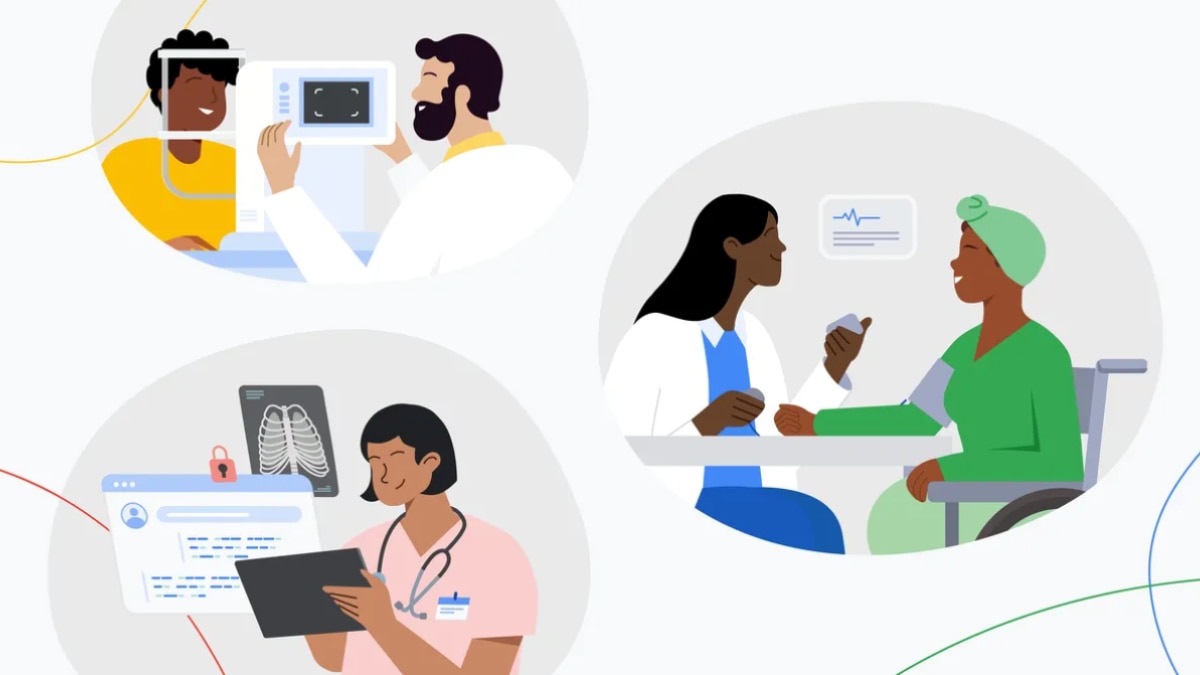
By Dr Gunjan Kishor Sharma Continues below advertisement window.addEventListener("load", function() { let ad_unit_fire_time = 1000; if(ad_delay_time_abp > 0){ ad_unit_fire_time = parseInt(ad_delay_time_abp) + 500; } setTimeout(function () { googletag.cmd.
push(function() { googletag.display("div-gpt-ad-9167143-2"); }); },ad_unit_fire_time) }); Google has once again taken a significant leap in healthcare innovation with its latest AI-powered updates aimed at improving medical search results. By integrating AI into health-related searches, Google is making it easier for people to find reliable information, understand symptoms, and access community-driven insights.

This update is not just about simplifying medical queries — it is about empowering patients and doctors alike with better, more structured health data. How Google’s AI Health Search Benefits Patients One of the standout features of Google’s AI update is the ability to summarise online health discussions. The value of Google's AI-driven health discussion is a novel approach to making patients feel and relate to the emotions of others suffering from the same disease.
It allows individuals to gain insights into how others cope with similar conditions, covering not just medical aspects but also emotional and financial challenges. Continues below advertisement window.addEventListener("load", function() { let ad_unit_fire_time = 1000; if(ad_delay_time_abp > 0){ ad_unit_fire_time = parseInt(ad_delay_time_abp) + 500; } setTimeout(function () { googletag.
cmd.push(function() { googletag.display("div-gpt-ad-1253031-3"); }); },ad_unit_fire_time) }); For instance, someone managing diabetes can quickly explore how others balance diet, exercise, and medication.
This feature organises diverse perspectives into easily digestible themes, offering users real-world insights and experiences that go beyond generic medical explanations. However, while AI-driven summaries can be a valuable tool, caution is necessary when interpreting them. AI should not replace medical professionals, especially in diagnosis.
Many illnesses share overlapping symptoms, and language variations can further complicate AI-generated conclusions. For example, in northern India, the word "gas" is frequently used to describe a range of conditions, from anxiety and cardiac issues to intestinal infections. Only a trained doctor, through a thorough evaluation, can determine the true cause, highlighting the risks of misdiagnosis if AI is solely relied upon.
Enhancing Doctor-Patient Communication For doctors, these AI-powered updates present an opportunity to better understand patient concerns before consultations. By analysing frequently asked questions and patient-shared experiences, healthcare providers can gain deeper insights into common misconceptions and challenges faced by their patients. This can lead to more informed discussions, targeted advice, and improved doctor-patient relationships.
Additionally, Google’s AI search now integrates with virtual medical assistants, offering instant, credible information on medications, side effects, and treatment options. This can save doctors time by providing quick references while ensuring that patients receive accurate medical knowledge from trusted sources. The Future of AI in Healthcare Beyond search, the future of AI in healthcare could involve even more sophisticated applications, such as predictive diagnostics, AI-driven treatment recommendations, and personalised virtual health assistants.
Google’s advancements indicate a growing shift towards technology-enhanced healthcare, where AI and medical expertise work together to improve outcomes. While AI cannot and should not replace human doctors, its ability to assist in research, streamline medical information, and improve patient awareness is undeniable. As the technology evolves, ensuring responsible AI use and maintaining the balance between automation and human expertise will be key to maximising its potential in the healthcare sector.
(The author is a Senior Consultant Physician & Noninvasive Cardiologist) Disclaimer: The opinions, beliefs, and views expressed by the various authors and forum participants on this website are personal and do not reflect the opinions, beliefs, and views of ABP Network Pvt. Ltd..















